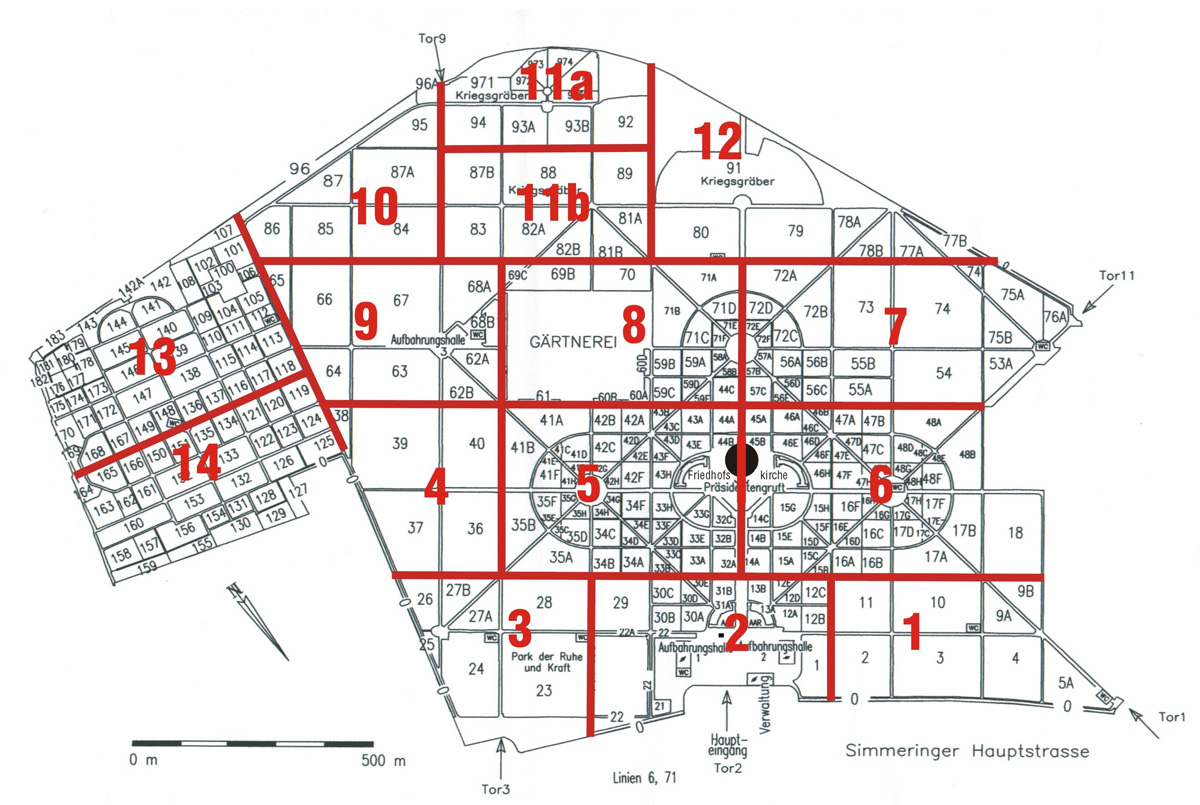Franz Schubert
Fun Fact
It was near the grave of Beethoven, whom he had admired all his life, that Schubert was buried at his own request, in the village cemetery of Währing on the edge of the Vienna Woods. A year earlier Schubert had served as a torchbearer at Beethoven’s funeral. In 1872, a memorial to Franz Schubert was erected in Vienna’s Stadtpark. In 1888, both Schubert’s and Beethoven’s graves were moved to the Zentralfriedhof where they can now be found next to those of Johann Strauss II and Johannes Brahms. Anton Bruckner was present at both exhumations, and he reached into both coffins and held the revered skulls in his hands. The cemetery in Währing was converted into a park in 1925, called the Schubert Park, and his former grave site was marked by a bust.
Cemetery Information:
Final Resting Place:
Der Wiener Zentralfriedhof
1110 Wien
Simmeringer Hauptstraße 234, Vienna,
Austria
Europe
Map:

Grave Location:
Gruppe 32 A, Grab Nr. 29Grave Location Description
You can find the grave very easily if you enter the cemetery through that main entrance, which is called Tor (Gate) 2. Once inside, go straight on, through the middle of the stone arcade ahead of you, towards the large Jugendstil church in the distance. Just keep your eyes on the left hand side to eventually spot the grave of the legendary composer about 100 feet off the road. Nearby neighbors include Beethoven, Brahms, and various members of the Strauss family. Across the paved path is a memorial to some guy named Mozart.
Grave Location GPS
48.15202259130885, 16.440121648713845Visiting The Grave:
Photos:
Read More About Franz Schubert:
- Wikipedia Entry
- Visiting Vienna - Explore the major (and minor) Schubert landmarks in Vienna
- Music History Monday - Franz Schubert's death
- Franz Schubert’s Sterbewohnung (final residence)
- The Young Franz Schubert": An Ineradicable Misidentification
- A Guide to Franz Schubert’s Life and Music
- The death of Franz Schubert
- Best Schubert Works: 10 Essential Pieces By The Great Composer
- The life and death of Franz Schubert








